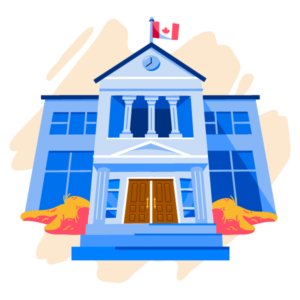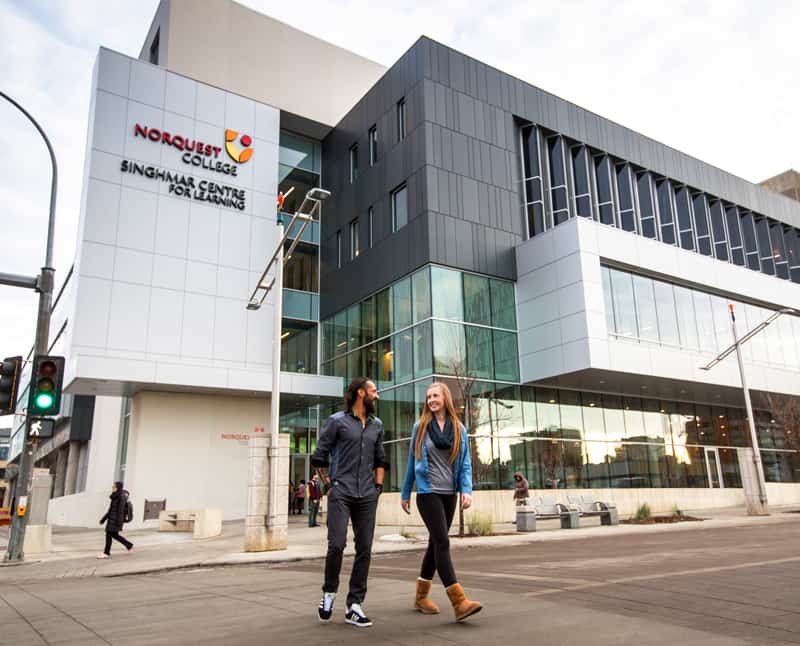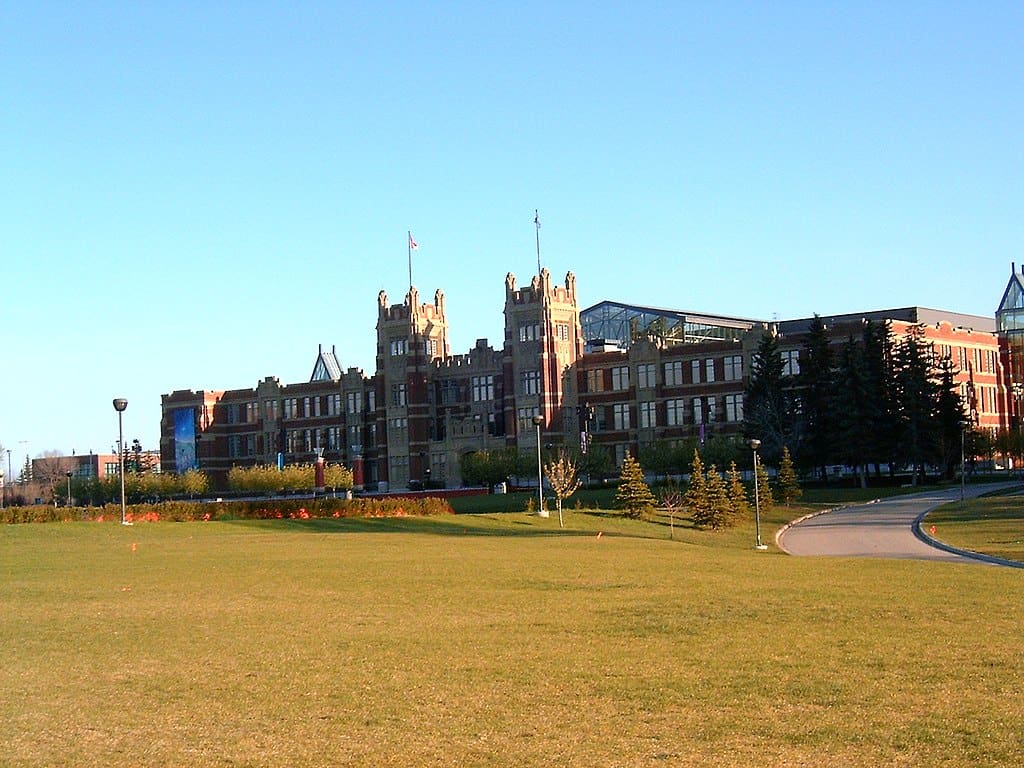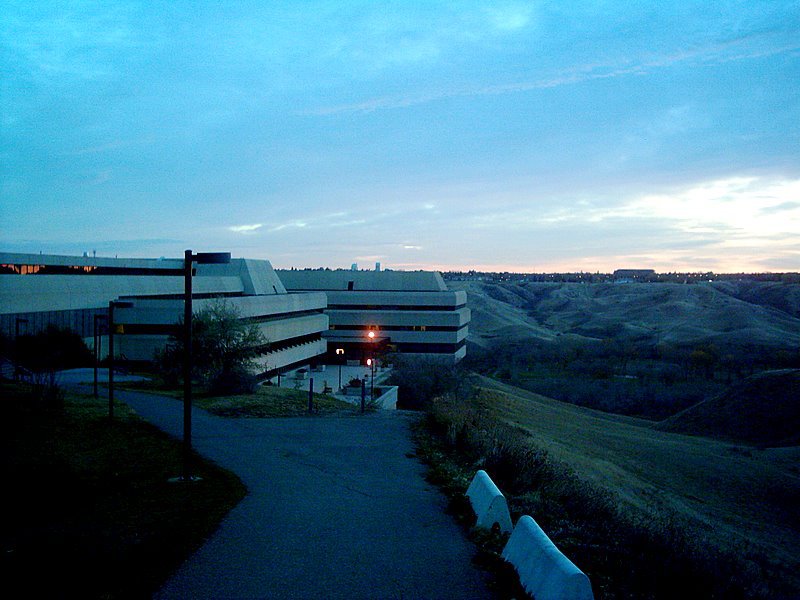ApplyBoard is looking across Canada to help international students understand this unique country. We’re starting with the Prairie Provinces, and are travelling (virtually!) to Alberta. Read on to discover why studying in Alberta is a great option for international students, and learn about some of ApplyBoard’s partner schools in the province.
Curious about other Prairie Provinces? Read our Saskatchewan blog, or learn more about Manitoba!

Studying in Alberta
International students will feel at home quickly. Alberta’s cities and campuses are large enough to offer lots of programs and services, while maintaining a friendly feel that can help students adjust to their new home.
The province’s smaller population often means class sizes are smaller. Some of the schools below have a student-to-faculty ratio as low as 15:1! This means that students are likely to get more direct attention from instructors. Plus, they’ll have a better chance to connect with other students. While competition is steep for some co-op placements, fewer students compete for each spot.
Students at many of Alberta’s colleges and universities will complete co-ops or practicums in the industries below.
Alberta’s major industries include:
- Aerospace and defence
- Agriculture and agri-foods
- Financial services and fintech
- Industrial manufacturing
- Information and communications technology
- Interactive digital media
- Oil and gas
- Petrochemicals
- Sustainable energy
- Tourism
Work-integrated learning opportunities give students hands-on experience that improves their job prospects after graduation. Some co-ops are paid, but others are not, so keep that in mind as you choose your program!

Living in Alberta
Alberta was part of the frontier during the Gold Rush, and its cities have always attracted people from around the world. Whether at festivals or in well-established communities, students are likely to find familiar foods and traditions, and can also try new things.
Some local favourites:
- Hiking in the hoodoos in Drumheller
- Watching the Northern Lights outside of Fort McMurray
- Trying a Caesar cocktail (invented in Calgary!)
- Enjoying a summer festival like Stampede, Fringe, or Street Machine Weekend
- Seeing stars in Jasper’s Dark Sky Preserve
Most cities have good public transportation, so many students can take advantage of light rail transit, buses, and/or bike shares. To further help your budget, Alberta doesn’t have a provincial sales tax, so students pay less for goods and services. Alberta’s cost of living is also lower than the cost of living in its neighbouring province, British Columbia.
Alberta’s lower cost of living doesn’t mean that students miss out on living in safe and vibrant places! The Economist ranked Calgary as the world’s fifth most livable city in 2019, and its 1.6 million residents enjoy 333 sunny days per year.

ApplyBoard Partner Schools

Image Courtesy of NorQuest College.
NorQuest College
Founded in 1965, NorQuest College is a publicly-funded community college in Edmonton. 57% of its student body was born outside of Canada, and over 115 languages are spoken on campus.
NorQuest’s focus is on skill-based learning, and many of its programs are one to two years long. The college offers small classes with high-tech facilities. For example, the Health and Community Studies faculty has a simulation lab, and virtual simulations and practicums are available. Every NorQuest program includes work-integrated or experiential learning opportunities, where students can build work experience in their field. Popular programs include:
- Business Administration
- Early Learning and Child Care
- Educational Assistant
- Energy Management
- Health Care Aide
- Pharmacy Tech
All NorQuest programs are eligible for the Canadian Post-Graduate Work Permit, and their 2019 graduates reported a 95% employment rate.

Image Credit: Public domain, sourced via Wikimedia Commons.
Southern Alberta Institute of Technology
With multiple campuses in Calgary, the Southern Alberta Institute of Technology (SAIT) offers industry-driven and student-focused programs. SAIT was Canada’s first publicly-funded institute of technology, and has become one of the top research colleges in Canada since its founding in 1916. Instructors have five to 10 years of industry experience, and blend business knowledge with academic best practices.
Most programs offer practicums, and encourage practical labs and coursework. With 18,000 full-time students and eight schools, including Advanced Digital Tech, Business, Energy, and Manufacturing, SAIT is an energetic, innovative place to learn. CEOWorld Magazine ranked their Culinary School and School of Hospitality and Tourism #1 in Canada in 2021.
SAIT works closely with industry professionals, often inviting employers to campus, and then building programs around desired skills. This partnership between academia and industry is effective: According to a 2019 survey, 91% of SAIT alumni found work in under eight months after graduating.

Image Credit: Kim Siever from Lethbridge, AB, Canada, Public domain, via Wikimedia Commons
University of Lethbridge
The 2021 Maclean’s University Rankings placed University of Lethbridge second in Canada for its undergraduate university experience. This makes it a great option to consider for a bachelor’s degree if you’re thinking of studying in Alberta!
One factor that helps it rank highly is an excellent student-to-faculty ratio: 15 students per faculty member. The average first-year class is only 38 students, so many profs know their students by name. This can help international students feel connected to their new community, while also encouraging collaboration and innovation.
Over 150 undergraduate degree programs are available, and the university is always expanding its offerings. For example, their Digital Audio Arts major is the most comprehensive degree of its kind in Western Canada, and Lethbridge is the only university in Alberta that offers co-op work experiences to all students in its Faculties of Arts and Science. Business students also have access to academic financial trading rooms connected to the Toronto Stock Exchange.
Popular undergraduate programs include:
- Arts: Anthropology major
- Science (majors include: Neuroscience, Computer Science, and Agricultural Studies)
- Nursing (4-year degree and 2-year post-degree programs)
- Fine Arts: New Media major
From skilled trades to post-graduate degrees, forestry to business studies, there’s an opportunity for every student in Alberta.
Curious about studying in Alberta? Explore study abroad programs on the ApplyBoard Platform!



